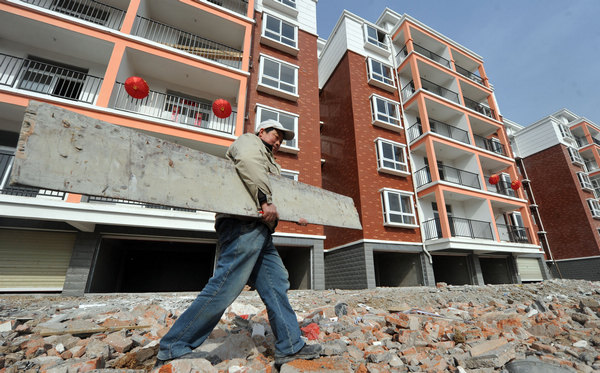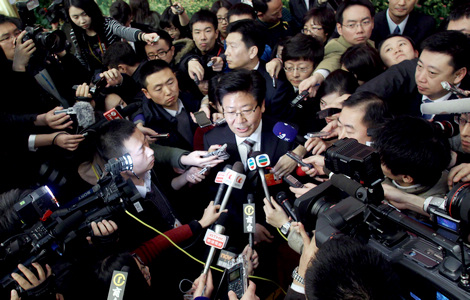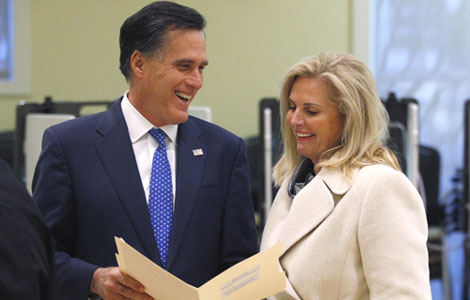 |
|
|
|
|||||||||||
Local governments should view affordable housing projects as long-term investments that can create revenue, rather than a financial burden, said a leading economist who is also a member of the country's top advisory body.
"Affordable housing projects are not a one-off financial outlay for local governments, they are assets. If they are built well and under good management, they can be a vital source of public revenue," Li Daokui, director of the Center for China in the World Economy at Tsinghua University, said on Wednesday.
|
 |
|
A construction worker at the building site of a subsidized housing project in Tuohu Lake town, Anhui province. [Liu Xijun / Xinhua] |
The government should mobilize the capital market and private investors to inject money into the construction of affordable housing, but clarification of ownership should be the precondition, said Li.
He also urged the government to shift its attention from the impoverished group to the "sandwich class" - people who cannot afford commercial properties for the foreseeable future - and to build more affordable housing for the latter.
The "sandwich class" accounts for a considerable proportion of the urban population, especially in big cities, and local governments can charge relatively higher rents according to individual users' income levels, Li proposed.
Therefore, the profits from affordable housing are promising, forecasted Li.
Li made the remarks at a news briefing with other four members of the Chinese People's Political Consultative Conference National Committee.
Tian Zaiwei, general manager of Shuntiantong Group, a Beijing-based property developer, said that the profits from affordable housing projects are not as bad as some companies assume.
Tian urged his counterparts to improve their management and reduce unnecessary expenditure to realize higher profits.
In 2011, around 10 million affordable homes were under construction in China, and about 4.32 million were completed, according to the statistics from the Ministry of Housing and Urban-Rural Development.
"The number of projects under construction will reach a new high in the years to come, putting more financial pressure on governments to support these housing projects," said Zhang Xueqin, deputy director of the ministry's Department of Public Housing Policy.
This year, construction of another 7 million units of affordable housing will begin, bringing the total to more than 17 million units.
"Even if we don't take inflation into account, total investment will be 20 percent higher this year," Zhang said.
"The total cost of these housing projects is under calculation, but the central government has decided to expand the channels for financing."
The central government allocated about 42 million yuan ($6.7 million) for this purpose to local governments in February.
Funding from the central government accounts for a small part of the total investment in affordable housing. It reached 1.3 trillion yuan last year, of which 152.6 billion yuan was from the central government.
Local governments are exploring various channels to raise funds, such as taking loans from banks and cutting taxes for these projects.
"We will get a loan of 10 billion yuan from China Development Bank. In addition, about 35 billion yuan will be collected from issuing private placement bonds this year," said Liu Zhiyu, deputy general manager of Beijing Public Housing Center, which is the only department in charge of financing affordable units in Beijing.
You may contact the writers at hedan@chinadaily.com.cn and zhengjinran@chinadaily.com.cn
Wu Ying, iPad, Jeremy Lin, Valentine's Day, Real Name, Whitney Houston, Syria,Iranian issue, Sanyan tourism, Giving birth in Hong Kong, Cadmium spill, housing policy

|

|

|

|

|

|